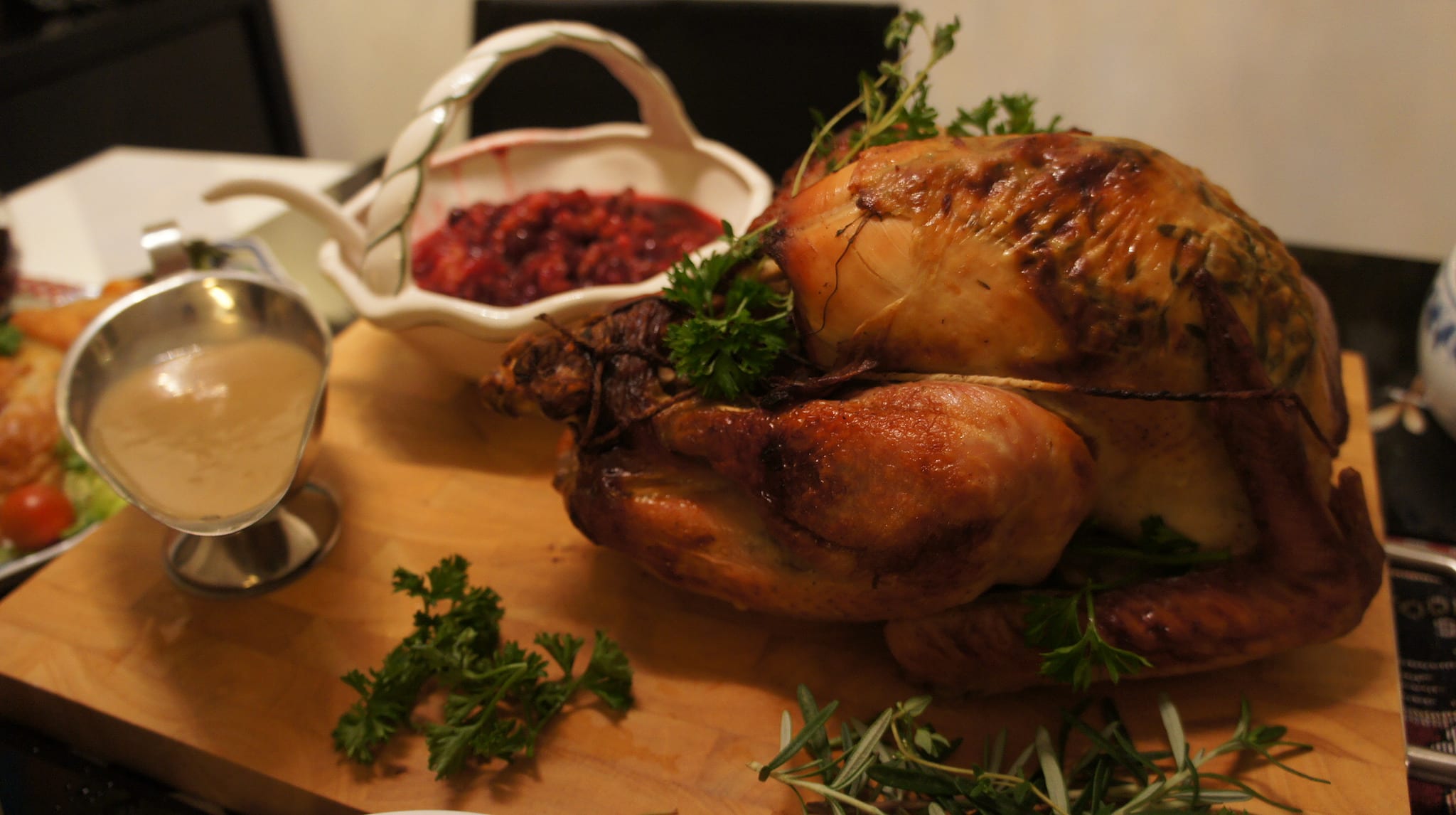To celebrate the holiday season, ASO is bringing you a science-filled 12 Days of ASO Christmas! This will be a series of ‘mini-blogs', by Rosemary Wills, centered on the science of some of our most cherished traditions. This is the second in the series.
The Myth:
Turkey's high tryptophan content is responsible for your post-holiday-dinner slump.
The Reality:
Turkey isn't any more sleep-inducing than cheddar cheese or a handful of almonds.

Tryptophan is an amino acid, one of the chemical building blocks that compose every protein in your body. Since it plays an important part in melatonin production- a neurotransmitter well-known for its role in sleep regulation- tryptophan is often marketed as a sleep aid. This may have inspired the turkey-tryptophan-sleep connection.
However, there's a number of issues with this theory. First of all, turkey's relatively high tryptophan content isn't unique; a cheese sandwich will give you just as much tryptophan as a turkey sandwich, as will a handful of nuts, a cup of yogurt, or many other meats like fish and chicken.
In fact, turkey isn't exactly bursting with tryptophan in the first place: of the 18 amino acids from the turkey entering your bloodstream and trying to cross the strict blood-brain barrier, tryptophan is in the bottom 1% of contenders. In other words, blaming your food coma on turkey tryptophan makes about as much sense as blaming the missing half of the apple pie on your baby cousin.
About the Author
 Rosemary Wills is an undergraduate at UGA majoring in Plant Biology and Science Education. When she's not writing, coding, or spending time with family, she enjoys growing plants in her windowsill and crocheting science-related things. More from Rosemary Wills. Rosemary Wills is an undergraduate at UGA majoring in Plant Biology and Science Education. When she's not writing, coding, or spending time with family, she enjoys growing plants in her windowsill and crocheting science-related things. More from Rosemary Wills. |
About the Author
- athenssciencecafehttps://athensscienceobserver.com/author/athenssciencecafe/April 17, 2020
- athenssciencecafehttps://athensscienceobserver.com/author/athenssciencecafe/April 12, 2020
- athenssciencecafehttps://athensscienceobserver.com/author/athenssciencecafe/April 3, 2020
- athenssciencecafehttps://athensscienceobserver.com/author/athenssciencecafe/March 30, 2020







